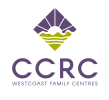Our Land Acknowledgment
The partners of The Hub respectfully honor the sovereignty of all Indigenous Nations, including their lands, waters, and skies. We recognize that these lands are sacred and acknowledge the deep and enduring relationships between Indigenous peoples and their territories, which have been disrupted by oppressive colonial systems.
…to read the full Land Acknowledgment click here
Copyright © 2025 – BC Early Years Professional Development Hub
Privacy Policy | Terms and Conditions | Contact Us info@bcearlyyearshub.ca
Website and Learning Design by
Learnbase





